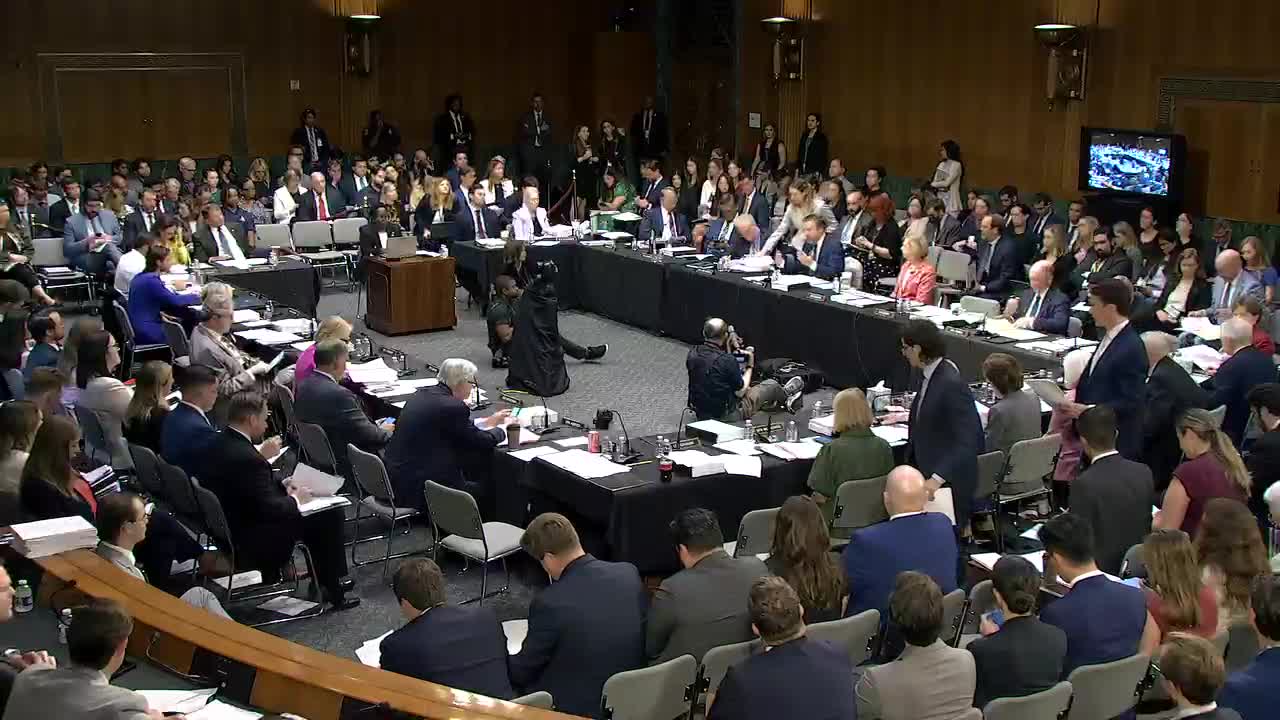Senators Debate Billion Dollar Retrofit for Presidential Plane Amid Concerns Over Waste
July 31, 2025 | Appropriations: Senate Committee, Standing Committees - House & Senate, Congressional Hearings Compilation
This article was created by AI summarizing key points discussed. AI makes mistakes, so for full details and context, please refer to the video of the full meeting. Please report any errors so we can fix them. Report an error »

In a heated session of the U.S. Senate Committee on Appropriations, lawmakers grappled with the implications of a proposed $1 billion retrofit for a presidential aircraft, raising concerns about fiscal responsibility and potential conflicts of interest. The discussion, which took place during the markup of the Defense and Labor, Health and Human Services, and Education Appropriations Acts, highlighted a growing unease among senators regarding the aircraft's future use.
Senator Murphy voiced strong objections, questioning the necessity of spending such a substantial amount on a plane that may only serve the military for a few months before being transferred to the president's library. "A billion dollars to pay for a plane that for 95% of its life will be used privately by the president?" he asked, emphasizing the potential waste of taxpayer dollars. He argued that if the aircraft is indeed intended for personal use after a brief period of public service, it would represent a significant conflict of interest and a breach of the bipartisan commitment to prevent gifts to high-ranking officials.
The senator proposed an amendment aimed at ensuring that the aircraft remains a military asset for its full service life, rather than being transferred to a non-governmental entity. This amendment sparked a debate about the urgency and necessity of the retrofit, with Senator McConnell countering that the discussion was more about political theater than genuine concern for fiscal prudence.
As the committee deliberated, the tension underscored a broader conversation about government spending and accountability. With the aircraft's future still uncertain, senators are left to ponder the implications of their decisions on taxpayer trust and the integrity of public service. The outcome of this debate could set a precedent for how government resources are allocated and managed in the years to come.
Senator Murphy voiced strong objections, questioning the necessity of spending such a substantial amount on a plane that may only serve the military for a few months before being transferred to the president's library. "A billion dollars to pay for a plane that for 95% of its life will be used privately by the president?" he asked, emphasizing the potential waste of taxpayer dollars. He argued that if the aircraft is indeed intended for personal use after a brief period of public service, it would represent a significant conflict of interest and a breach of the bipartisan commitment to prevent gifts to high-ranking officials.
The senator proposed an amendment aimed at ensuring that the aircraft remains a military asset for its full service life, rather than being transferred to a non-governmental entity. This amendment sparked a debate about the urgency and necessity of the retrofit, with Senator McConnell countering that the discussion was more about political theater than genuine concern for fiscal prudence.
As the committee deliberated, the tension underscored a broader conversation about government spending and accountability. With the aircraft's future still uncertain, senators are left to ponder the implications of their decisions on taxpayer trust and the integrity of public service. The outcome of this debate could set a precedent for how government resources are allocated and managed in the years to come.
View full meeting
This article is based on a recent meeting—watch the full video and explore the complete transcript for deeper insights into the discussion.
View full meeting